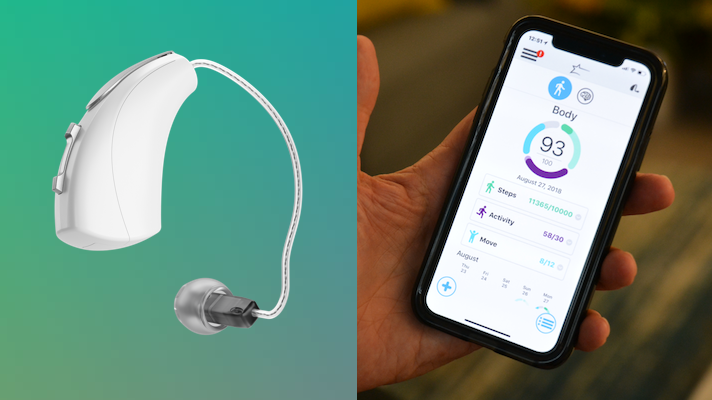Important Facts to Consider Before Purchasing Hearing Aids
By Neil & Shannon Aiello, Doctors of Audiology, Columbia Basin Hearing Center
If you are over the age of 55, your mailbox has probably been flooded with ads for the latest “life changing” hearing technology or perhaps; “You have been hand selected to participate in a field trial of the latest hearing solution”. Open the paper… “You are invited to a lunch presented by the nation’s top authority on hearing aids,” or “You triple the risk of dementia if you do not treat your hearing loss.” Another fraudulent type of advertising called the “loss leader”, or “bait and switch”, is when a company advertises extremely cheap products with little or no intention of actually selling them, e.g., the $495 to $895 hearing aid. These are all examples of deceptive advertising currently being used by some businesses and manufacturers of hearing aids to generate hearing aid sales by preying on those with hearing loss.
The facts are that some hearing aids are extremely sophisticated medical devices which were created only after hundreds of millions of dollars of research, development and testing was invested into their creation; while others are simply older hearing technologies, repackaged as new. People interested in hearing aids become confused with the abundance of misleading advertising which ultimately creates an atmosphere of distrust and lack of confidence in all providers of hearing aids.
We want to take this opportunity to provide a reality check and provide information to help you make educated decisions about you or your loved one’s hearing difficulties in today’s confusing market. There are three things that are critically important to investigate before investing in hearing aids.
1. The lowest price is rarely the best value
Hearing aids are a significant investment for everyone, regardless of income level. When hearing aids are recommended, the primary focus must be to find the right technology that will enable patients to succeed in the environments they live, socialize, and work in. This is a process that needs to include a dedicated professional to ensure a patient’s ultimate satisfaction with the investment that is made in hearing devices.
2. Service
Research has proven that first time hearing aid users’ top two desires are invisibility and price. However, the same study also shows
that the next time people purchase hearing aids, the number one requirement is service. Research has also shown that professional services before, during, and after the initial fitting are vital to the success of the patient. Unfortunately, many suppliers of hearing aids do not provide these services; they are simply treated as any other retail product. In addition, many people do not realize that countless professional services — which are needed to maintain optimal hearing levels — may not be included in the initial cost of the hearing aid. This is fairly common practice when purchasing hearing aids from online retailers, physician offices, and in hospital-based clinics. Paying for these services after the initial purchase and/or original warranty expiration can lead to significant future expenses which are vital to a patient’s success. Additionally, some dispensers do not retain the software necessary to readjust the hearing aids after a period of time, forcing replacement of the devices in as little as two to three years. This scenario is most common in big box stores and other retailers of hearing aids. The facts are that regularly maintained hearing aids can last five years or longer. This is a time frame that allows return from your investment.
3. Get the Doctor’s opinion
In nearly all states in America, the only necessary degree for dispensing hearing aids is a high school diploma or GED. Some require a technical two year degree which focuses primarily on dispensing hearing aids. Doctors of Audiology (Au.D.) are the most qualified, educated, and uniquely trained professionals in hearing diagnosis, rehabilitation, counseling and treatment; especially in the science of fitting digital hearing instruments and managing the psychosocial aspects of hearing loss. Each person is unique, requiring personalized solutions for their specific hearing needs. We understand that all people cannot be fitted with one type, style, or brand of hearing aid. What’s best for your friend or relative may not be what works best for you.







